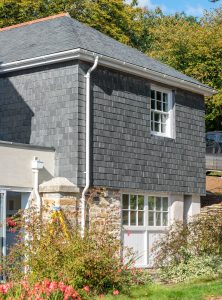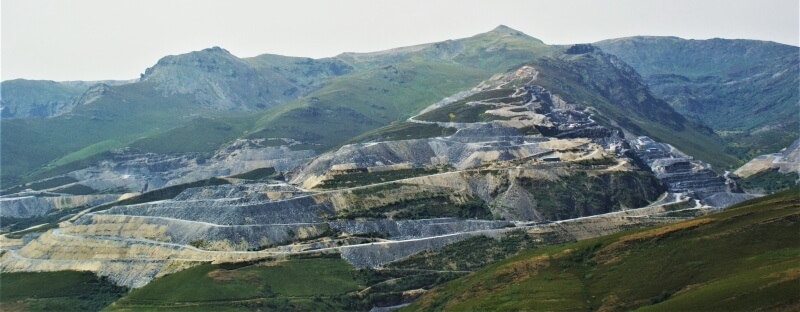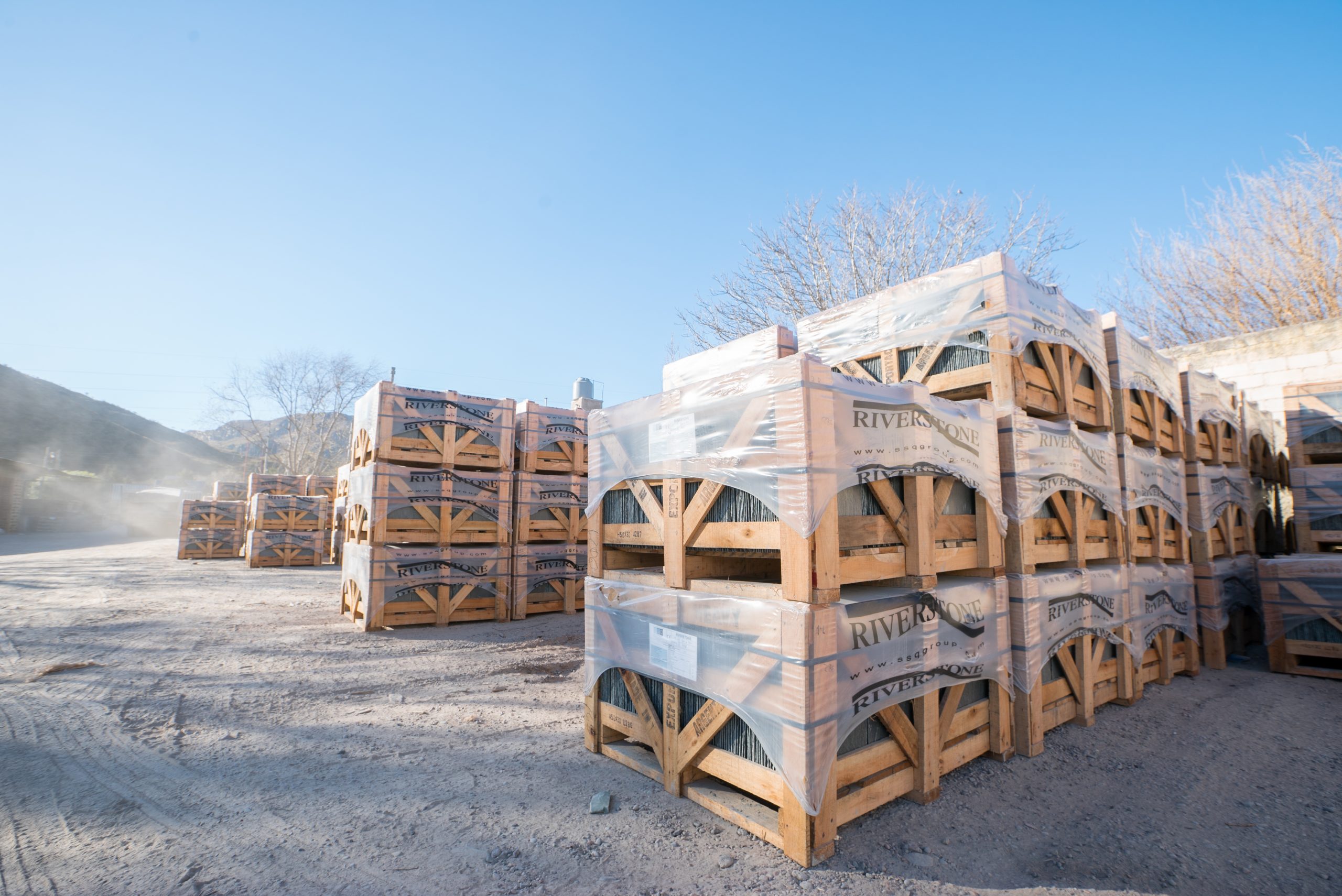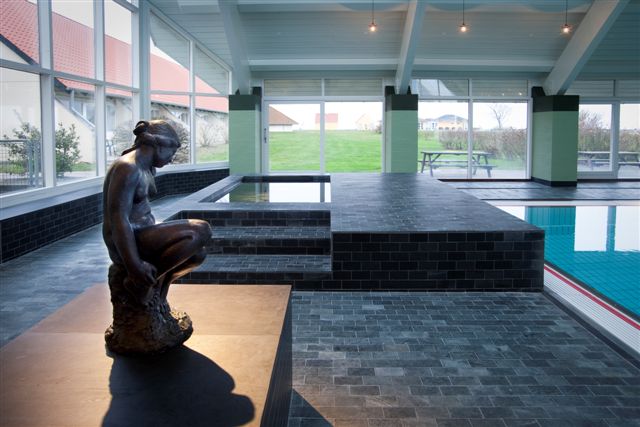Think of ‘sustainability’, and quarries extracting raw materials from the ground probably isn’t the first thing that comes to mind.
But natural slate is one of the most environmentally friendly roofing, flooring and cladding solutions available in the world today. As the UK construction industry strives to meet stringent net zero targets, as part of the more general effort to tackle climate change, it’s likely slate will become a more familiar part of housing developments, commercial projects and built environments everywhere.
What makes SSQ’s natural slate so sustainable?
Slate – natural, long-lasting, abundant and chemical free
Slate is sustainable because it’s a natural material that’s abundant and readily available. A slate tile requires minimal processing, with a production process that doesn’t use harmful chemical products.
One of its key benefits is its longevity. Hugely durable, a slate roof can last for over a century with minimal maintenance, and even longer when properly cared for. This means that once a slate is installed, it’s likely to last a very long time, reducing the need for frequent replacement and the waste that comes with it.
Another sustainability benefit of slate is its recyclability, reducing environmental challenges around disposal. When a slate does eventually need to be replaced, the old slates can be recycled and used in other construction projects. This helps to reduce waste and conserve natural resources.
Slate is also an energy-efficient material. It has a high thermal mass, which means it can absorb and retain heat, reducing the need for heating and cooling in buildings. This can result in lower energy bills and reduced carbon emissions.
In addition to its durability, recyclability, and energy efficiency, slate is also a low-impact material. It’s typically quarried using methods that minimise disturbance to the surrounding environment. Many slate quarries also have programs in place to restore the land once extraction has completed, helping to reduce the impact of the quarrying process.

Greener than the alternatives
In the roofing sector in particular, a slate tile is also much more environmentally friendly than many artificial materials on the market.
Asphalt shingles are extremely common, because they deliver non-combustibility at a very cheap price – but they’re also highly susceptible to weather damage.
Metal roofs are popular in some contexts – they’re lightweight and easy to install. But they’re also extremely noisy in bad weather, and prone to dents.
Clay and concrete tiles are widely used, but are brittle and susceptible to cracks, with concrete in particular being heavy and difficult to install.
Man-made roofing materials like clay, cement and concrete also have a big environmental impact.
To make clay tiles, furnaces are kept burning 24 hours a day. Ceramic and porcelain tiles are even worse – the kilns have to be at higher temperatures.
This accounts for major differences in carbon intensity between different roofing materials.
In independent studies, concrete tiles have been found to create 0.19kg of CO2 per kilogram. Clay is worse – they produce 0.43kg per kilo. Natural slate, by contrast, produces far less – between 0.005-0.054kg per kilo.
All in all, it makes natural slate a sustainable alternative, both for slate roofing and an array of other applications throughout construction.
SSQ’s commitment to sustainability
At SSQ, our commitment to sustainability extends beyond the natural slate we offer and how its quarried.
We also take steps to minimise our environmental impact in other ways – like investing in carbon offsetting.
In the past, we’ve cut our carbon footprint by supporting the Gold Standard VER East Africa Borehole project, which provides clean drinking water to people in impoverished parts of Sub-Saharan Africa.
In that instance, our investment allowed the Borehole project to significantly improve its energy efficiency to the value of 1,343 tonnes of carbon.
We continue to strive to reduce our impact by investing in similar projects.
More recently, we’ve been incorporated in BRE’s authoritative Green Book of sustainable construction suppliers.
SSQ’s Environmental Product Declaration was found to be in accordance with the requirements of EN 15804:2012+A1:2013 and the BRE Global Scheme Document SD207.
About SSQ
SSQ has been supplying customers with good quality slate roofing for over 40 years – starting with the UK, but today serving customers around the world. Initially specialising in Del Carmen natural slate from Spain, we’ve since diversified into Argentinian phyllite, Riverstone, which now features on high-end architectural projects in Europe, North America and Australia.
For homeowners, architects, specifiers and others interested in sustainable building, SSQ’s natural materials are the perfect choice for roofing, cladding and flooring applications. If you’re interested in learning more, contact us today!


